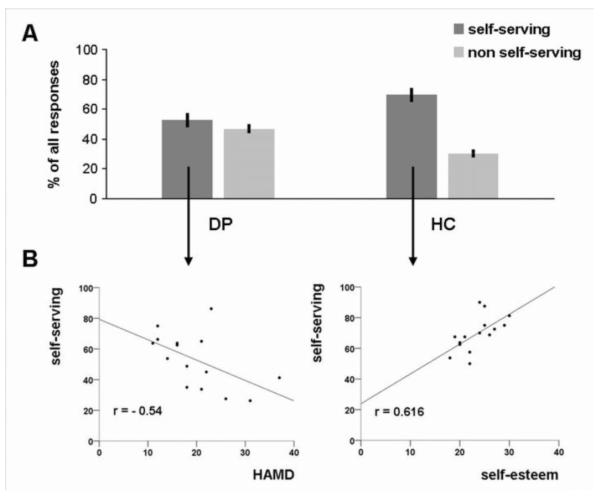Figure 1.
Behavioural results: Panel A displays biased causal attribution in healthy controls (HC; N=15) and balanced causal attribution in depressed patients (DP; N=15). Panel B shows that the percentage of self-serving responses in healthy controls is associated with higher self-esteem and in patients is associated with lower depression severity (Hamilton Depression Rating Scale, HAMD).

